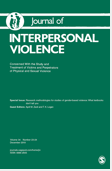
The paper asks What Role Does Substance Use Play in Intimate Partner Violence? and includes a Narrative Analysis of In-Depth Interviews With Men in Substance Use Treatment and Their Current or Former Female Partner.
Few studies have examined intimate partner violence (IPV) in relationships where one or both partners are in treatment for substance use, from the perspectives of both members of a couple. This study used thematic and narrative analysis of the accounts of 14 men recruited from substance use services and 14 women who were their current or former intimate partners. Separate researchers interviewed men and women from the same dyad pair. The psychopharmacological effects of substance use (including intoxication, craving, and withdrawal) were rarely the only explanation offered for IPV. Violence was reported to be primed and entangled with sexual jealousy, with perceptions of female impropriety and with women’s opposition to male authority. Both partners reported adversities and psychological vulnerabilities that they considered relevant to conflict and abuse. Male participants were more likely to describe IPV as uncharacteristic isolated events that arose from specific disputes—either aggravated by intoxication or withdrawal or about substance use and its resourcing—whereas women described enduring patterns of abusive behaviour often linked to intoxication, craving, withdrawal, and to disputes linked to raising funds for substances. In relationships where both partners used substances, men described the need to protect their partners from addiction and from unscrupulous others while women described highly controlling behaviour. In relationships where women were not dependent substance users, they reported the combined effects of psychological and financial abuse often linked to recurring patterns of substance use and relapse. These findings highlight the challenges faced by practitioners working with male perpetrators who use substances as well as the need of those working with women who have been abused to engage with the ways in which hesitance to leave male abusers can be complicated by shared drug dependency.
You can access the article here

